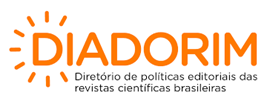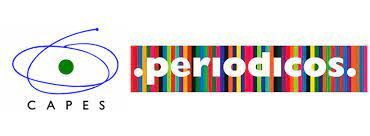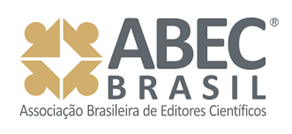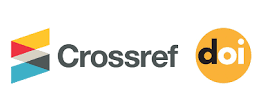AN ANALYSIS OF THE LITERATURE ON THE IMPLEMENTATION OF EDUCATION 4.0 TECHNOLOGIES AND TEACHING METHODOLOGIES IN BRAZILIAN SCHOOLS USING THE PRISMA PROTOCOL
DOI:
https://doi.org/10.22407/2176-1477/2024.v15.2548Keywords:
Problems of the Technology Teaching, Prisma, Education 4.0Abstract
In a world increasingly dependent on technology, adjustments in various sectors of society are always necessary to keep up with these developments. Similarly, education tries to follow that trend by adapting curriculum and methods to current needs. The movement known as Education 4.0 is the materialization of the need to implement technological adjustments in the curriculum of 21st-century schools. Therefore, it is necessary to try to understand how the Education 4.0 movement is occurring in national schools. Thus, the objective of the present study is to investigate, in the literature, proposals and case studies that allow us to understand the current scenario regarding the implementation of education 4.0 in Brazil, more specifically that of technological infrastructure and teaching methodologies. For this purpose, we used the PRISMA protocol to carry out a guided selection of articles of interest and the CIMO logic to carry out the systematic analysis. Our analysis shows that there are specific movements, motivated by the willpower of some teachers and researchers, but which face different types of challenges, such as a lack of technological infrastructure, standardized methodologies, among others. Our conclusion shows that schools across the country need support to implement Education 4.0, in terms of technological infrastructure and standardized methodologies. However, due to the scarcity of reports published in the literature, it is only possible to state that the present study lacks other reports, in addition to those used, to become more robust.
References
ALMEIDA, J. S. Material didático para o ensino aprendizagem das cinco emoções básicas e desenvolvimento da empatia. 2017. 139 p. Monografia (Graduação em Design Visual) - Universidade Federal do Rio Grande do Sul, Porto Alegre, 2017.
BARBOSA, M. O que dizem os estudos sobre competências socioemocionais: uma revisão de literatura. Revista Científica Multidisciplinar Núcleo do Conhecimento, p.141-169, 2023. Disponível em: https://www.nucleodoconhecimento.com.br/educacao/estudos-sobre-competencias. Acesso em: 18 set. 2023.
BARUCH, J. The Robots are coming – the 4th Industrial Revolution: Part 2. China Science & Technology Education, 2016. Disponível em: https://bradscholars.brad.ac.uk/handle/10454/9501?show=full. Acesso em: 20 de setembro de 2023.
BERMUDES, W. L. et al. Tipos de escalas utilizadas em pesquisas e suas aplicações. Revista Vértices, v. 18, n. 2, p. 7-20, 2016.
BIOLCHINI, J. et al. Systematic review in software engineering. System engineering and computer science department COPPE/UFRJ, Technical Report ES, v. 679, n. 5, p. 45, 2005.
BOLLELA, V. R. et al. Aprendizagem baseada em equipes: da teoria à prática. Medicina, Ribeirão Preto, v. 47, n. 3, p. 293-300, 2014.
COPPI, M. et al. O uso de tecnologias digitais em educação: caminhos de futuro para uma educação digital. Práxis Educativa, Ponta Grossa, v. 17, 2022.
CHIOSSI, R. R.; COSTA, C. S. Novas formas de aprender e ensinar: a integração das tecnologias de informação e comunicação (TIC) na formação de professores da educação básica. Texto Livre: Linguagem e Tecnologia, v. 11, n. 2, p. 160-176, 2018.
COSTA, E.; SOARES, A. L.; DE SOUSA, J. P. Exploring the CIMO-logic in the design of collaborative networks mediated by digital platforms. In: Collaborative Networks of Cognitive Systems: 19th IFIP WG 5.5 Working Conference on Virtual Enterprises, PRO-VE 2018, Cardiff, UK, September 17-19, 2018, Proceedings 19. Springer International Publishing, 2018. p. 266-277.
DA SILVA, L. Q.; FOSSATTI, P.; JUNG, H. S. Utilização De Artefatos Google For Education Em Estratégias Pensadas Para Metodologias Ativas. Práxis Educacional, v. 15, n. 34, p. 106-126, 2019.
DRUMOND, L. G. H.; CONRADO, D.; PEREIRA, C. A. Livro-jogo interativo para o ensino interdisciplinar de programação no ensino técnico integrado. Revista Brasileira da Educação Profissional e Tecnológica, v. 2, n. 21, p. e11513-e11513, 2021.
FILATRO, A.; CAIRO, S. Produção de Conteúdos Educacionais. Saraiva Educação SA, 2017.
FILIPPUCCI et al. The impact of Artificial Intelligence on productivity, distribution and growth: Key mechanisms, initial evidence and policy challenges. OECD Artificial Intelligence Papers, n. 15, OECD Publishing, Paris, 2024. Disponível em: https://www.oecd-ilibrary.org/docserver/8d900037-en.pdf?expires=1717551514&id=id&accname=guest&checksum=AA0DDEC3F940AFDBAE86A5E4CE352865. Acesso em 04 jun 24.
FISK, R. P. et al. Education 4.0: The future of learning will be dramatically different, in school and throughout life, 2017. Disponível em: <https://www.scirp.org/(S(vtj3fa45qm1ean45%20vvffcz55))/reference/referencespapers.aspx?referenceid=3165826>. Acesso em: 25 mai. 2023.
INEP. Censo Escolar. INEP, 2019. Disponível em: <http://portal.inep.gov.br/web/guest/resultados-e-resumos>. Acesso em: 05 mai. 2023.
MELO, B. C.; SANT'ANA, G. Prática da Metodologia Ativa: compreensão dos discentes enquanto autores do processo ensino aprendizagem. Comun Ciência Saúde [Internet]. 2012 [cited 2016 Nov 30]; 23 (4): 327-39.
MOHER, D. et al. Preferred reporting items for systematic reviews and meta-analyses: the PRISMA statement. Annals of internal medicine, v. 151, n. 4, p. 264-269, 2009.
ONISAKI, H. H. C.; DE BASTOS VIEIRA, R. M. Impressão 3D e o desenvolvimento de produtos educacionais. Educitec-Revista de Estudos e Pesquisas sobre Ensino Tecnológico, v. 5, n. 10, 2019.
PIAGET, J. Epistemologia Genética. Petrópolis: Vozes, 1970.
SCHERER, S.; BRITO, G. Integração de tecnologias digitais ao currículo: diálogos sobre desafios e dificuldades. Educar em Revista, v. 36, p. e76252, 2020. Disponível em: https://www.scielo.br/j/er/a/FCR5M56M6Chgp4xknpPdKmx/. Acesso em 18 set. 2023.
SILVA, A. V. B. M.; SILVA, Gabryella R.R.; COUTO, D. C. C. Design Educacional como Ferramenta no Processo de Construção de Material Didático Digital para Ensino de Pensamento Computacional. Educitec-Revista de Estudos e Pesquisas sobre Ensino Tecnológico, v. 6, p. e155920-e155920, 2020.
SILVA, R. B.; BLIKSTEIN, P. Robótica Educacional: Experiências Inovadoras na Educação. Porto Alegre: Penso Editora, 2020.
SOLOMON, D. A. Top Ten Indications of a Future University, 2023. Disponível em: https://www.researchgate.net/publication/368356775_Top_Ten_Indications_of_a_Future_University. Acesso em 20 set. 2023.
SOUTO, K. C.; CASTRO, H. C.; DELOU, C. M. C.. Robótica educativa: Guia prático de/para professor. Revista Vivências, v. 18, n. 37, p. 137-155, 2022.
DE MAGALHÃES TOCANTINS, A. P.; TOCANTINS, I. O empreendedorismo na educação infantil: uma nova perspectiva de futuro. Connection line-revista eletrônica do UNIVAG, n. 25, 2021. Disponível em: 10.18312/connectionline.v0i25.1708. Acesso em 20 de set. 2023.
VALENGA, F.; RAIMONDI, A.; COLOMBO, K.; BORDIN, K. Uso de aprendizagem baseada em projetos com apoio de outras metodologias ativas para promover aprendizagem ativa no ensino de biotecnologia. Revista Brasileira de Ensino de Ciências e Tecnologia, Ponta Grossa, v. 12, n. 2, p. 148-163, 2019.
VYGOTSKY, L. S. A formação social da mente: o desenvolvimento social da mente. São Paulo: Martins Fontes, 2007.
Downloads
Published
How to Cite
Issue
Section
License
Copyright (c) 2024 Rafaela Corrêa Ribeiro, Marcelle Caruzo Xavier, Claudio Aprigio da Silva, Flávio de Almeida Violante, Denise Leal de Castro, Genildo Nonato Santos

This work is licensed under a Creative Commons Attribution-NonCommercial 4.0 International License.
O autor responsável pela submissão representa todos os autores do artigo, e se compromete a enviar como documento suplementar uma carta de consentimento com a assinatura de todos os autores informando que tem a permissão para a submissão do texto assim como assegura que não há violação de direitos autorais e nem qualquer tipo de plágio (incluindo autoplágio).









